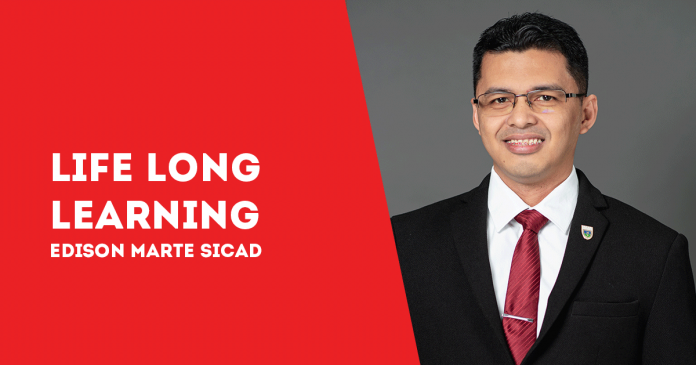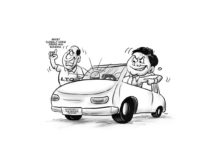
BY EDISON MARTE SICAD
THIS QUESTION is a line from Hörderlin’s elegy Bread and Wine. The whole discussion of this elegy can be found in Heidegger’s book Poetry, Language, Thought. For this column, I have chosen this line as my main premise: not everything can be answered immediately or even be answered at all. And there are questions that can only be understood if asked with the right intention. Sometimes, asking could be the beginning of wisdom that can lead us to Truth itself.
To put this in perspective, the insights here are somehow related to the Holy Week. In general, I am looking back and trying to connect the dots. In other words, making meaning as to the decisions—including mistakes—I have made; then making or choosing a new path—in modern parlance, an opportunity—that could mean crossing the Rubicon or following Icarus in his flight.
I invite the reader to read more about the insights listed here using as basis the title of a reference or a book. These writings became my lifelong companion, especially in guiding me back to the right direction when my immaturity derails my journey.
1. Gandhi’s Seven Deadly Sins
What are principles for in times of need? What good are promises in times of difficulties? What could be better than money and praise in today’s environment?
There is truth to the saying “It’s not just what you know, but whom you know that really matters.” Some organizations would call this Loyalty.
Would this mean then that Success is more of a “palakasan” or “backer” accomplishment?
2. Covey’s 7 Habits of Highly Effective People
This book by Stephen Covey is a “Read Again and Again” type of book. For despite the simplicity of its ideas, the implementation is way too difficult. One problem I would encounter is Consistency. It is said that Consistency is Power. That there is perfection in repetition—which makes these habits almost a utopian or idealistic map of life.
Did you ever have a perfect day? Or a perfect week? How about having a perfect month?
3. Kohlberg’s Stages of Moral Development
I learned about this in a teacher’s seminar. The gist is that in schools, the teaching of lessons must lead into character building and not just grades, medals, awards.
This involves a story of a girl who did the right thing in school without telling anyone else. But the teacher knew it because of her reaction when the class was asked as to who among them did it.
The message to us grown-ups is, “The reward is in the doing.” This is a very difficult task to some of us because of the dopamine effect of posting in social media.
If schools are expected to instill toughness and build good character, why do we have snowflake students?
(Snowflakes are people who easily melt under pressure.)
4. Greene’s 48 Laws of Power
This, for me, is a dangerous book. Could be the modern version of Machiavelli’s The Prince. But the author is not really endorsing the laws. Robert Greene only presented to us the laws that were effectively used by Man to manipulate his fellowmen. History is such an interesting subject.
From the dynasties of China to the election of JFK, these laws of power were self-evident. And these laws are still being applied today. You can learn these too and use them (pun intended).
Was Loki correct with what he said in The Avengers?: “It’s the unspoken truth of humanity, that you crave subjugation. The bright lure of freedom diminishes your life’s joy in a mad scramble for power, for identity. You were made to be ruled… ”
5. The 8 Beatitudes
And since this column was more of a reflection—and I think all writing must be a reflection unless tainted by academic superfluousness—I am trying to balance faith and reason in relation with freedom and obedience. Up to what extent must we question things and when do we believe by faith and lean on to something more spiritual?
IN CONCLUSION, all I did was give more questions than answers. And maybe because we are made to do so: to ask and ask like a child and wonder how come we cannot have the answer immediately. But it is in asking that one human quality can give us a “trace of the divine”: Humility.
May we continue to ask and search for the Truth. The journey is all we have. The asking is all we can be certain about.
“I would rather have questions that can’t be answered than answers that can’t be questioned.” ? Richard P. Feynman/PN




